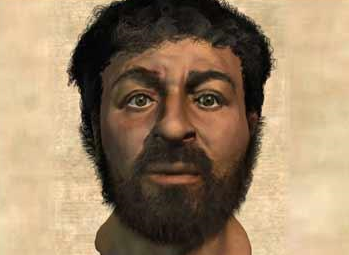In 1 Corinthians 15:3-8 Paul mentions everyone who the gospel of Jesus Christ was made known to. He says Jesus appeared to them as he did to him, which as previously mentioned was through interpretation of scriptures. Jesus appeared in their heads, in visions. Hence how and why he appeared to over 500 people, alive and dead, at the same time.
Paul likely believed Jesus was real, flesh & blood, and not a “mystic figure” like many proposed messiahs that only existed in a mystical realm. But Paul also made it clear that Jesus’ life and deeds went by unnoticed by man until his story was later revealed to man through the “divine” interpretation of scripture.
Because of this, Paul regularly cites knowledge of Jesus as being a mystery to the public. Paul also always refers to Jesus’ “appearance” and future coming without any returning aspects. He even calls Jesus’ future coming a “revelation”, something that will happen for the first time.
Jesus’ coming is referred to as a “COMING” without any returning aspect in 1 Corinthians 4:5, 11:26, 15:23, 16:22, 2 Peter 1:16, 3:3, 1 Thessalonians 2:19, 3:13, 4:15, 5:23, James 5:7, 5:8, 2 Thessalonians 1:10, 2:1-2, 2:8, Hebrews 10:37, & 1 John 2:28.
Jesus’ coming is referred to as an “APPEARANCE” without any returning aspect in 1 John 2:28, Colossians 3:4, 1 Peter 5:4, 1 Timothy 6:14-16, 2 Timothy 4:1, & Titus 2:13.
Finally, Jesus’ coming is referred to as a “REVELATION” which is something that will happen for the first time in 1 Peter 4:13, 1 Peter 5:1, 2 Thessalonians 1:7, 2 Thessalonians 2:6, 1 Peter 1:13, & 1 Corinthians 1:7.
Hebrews 9:28 says Jesus will appear a second time but this passage does not say he will appear before his followers a second time, just simply appear back on earth where his first appearance was unknown to humans.
For this reason I, Paul, the prisoner of Christ Jesus for the sake of you Gentiles— Surely you have heard about the administration of God’s grace that was given to me for you, that is, the mystery made known to me by revelation, as I have already written briefly. In reading this, then, you will be able to understand my insight into the mystery of Christ, which was not made known to people in other generations as it has now been revealed by the Spirit to God’s holy apostles and prophets.
Ephesians 3:1-5
Now to him who is able to establish you in accordance with my gospel, the message I proclaim about Jesus Christ, in keeping with the revelation of the mystery hidden for long ages past, but now revealed and made known through the prophetic writings by the command of the eternal God, so that all the Gentiles might come to the obedience that comes from faith
Romans 16:25-26
My goal is that they may be encouraged in heart and united in love, so that they may have the full riches of complete understanding, in order that they may know the mystery of God, namely, Christ
Colossians 2:2
And pray for us, too, that God may open a door for our message, so that we may proclaim the mystery of Christ, for which I am in chains.
Colossians 4:3









 Certain stories in the gospels suggest that some aspects of Jesus’ life were loosely inspired by legends of an actual person, or persons. Historians have dubbed this person(s) “Historical Jesus” because an actual name is not known. Outside of scripture, there is nothing to suggest that this person(s) existed but certain scriptural writings about Jesus, such as the resurrection story, sound more like they were based on a real-life regular human being than a demi-god figure.
Certain stories in the gospels suggest that some aspects of Jesus’ life were loosely inspired by legends of an actual person, or persons. Historians have dubbed this person(s) “Historical Jesus” because an actual name is not known. Outside of scripture, there is nothing to suggest that this person(s) existed but certain scriptural writings about Jesus, such as the resurrection story, sound more like they were based on a real-life regular human being than a demi-god figure.



